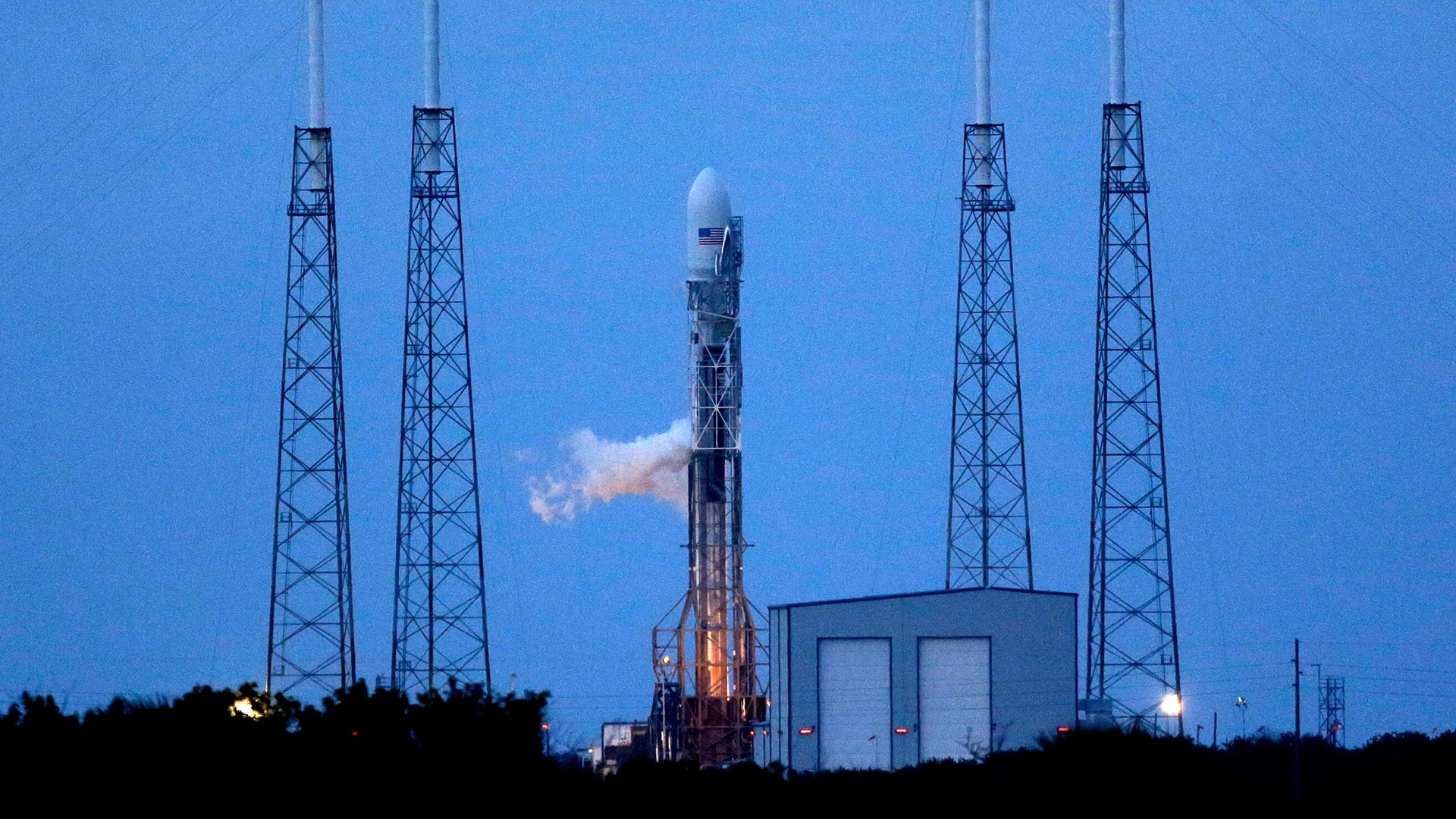SpaceX just made rocket launches affordable. Here’s how it could make them downright cheap.
When SpaceX put a communications satellite into orbit yesterday, it wasn’t a just triumph of technology. It was a victory for cost control.


When SpaceX put a communications satellite into orbit yesterday, it wasn’t a just triumph of technology. It was a victory for cost control.
The enormous expense of rocket launches—especially to the heights needed to keep a large satellite orbiting in a fixed spot over Earth—is a problem for both the nascent space industry and space science in general. That price tag has limited operations of both NASA and the NSA. Until now, most commercial operations contracted with Russia’s space agency in Kazakhstan or Europe’s space agency, which launches from South America. Depending on a number of factors, mostly the size and weight of payload, the cost of a single launch ranges from $100 million to $260 million.
SpaceX charged SES, a global satellite company, a mere $55 million for this launch. CEO Elon Musk attributes the low cost of SpaceX’s Falcon 9 rocket to its modular design and engineering choices, as well as to SpaceX’s preference for making its own components rather than outsourcing.
The success of this first launch for a private client—the company had already contracted with NASA to deliver supplies to the International Space Station via its rocket and reusable robotic space capsule, called Dragon—clears the way for SpaceX to fulfill its $4 billion book of business. If future launches confirm Falcon 9’s reliability, SpaceX will “own the satellite launch industry,” as space journalist Michael Belfiore puts it. That will give it the cash flow to pursue its more technically challenging plans, such as a trip to Mars.
But SpaceX isn’t done with cost-cutting just yet. One of the most expensive things about rocket launches is that the rocket typically burns up in the atmosphere when it returns to earth or winds up in the ocean—literally, a sunk cost.
That’s why the Grasshopper, the company’s prototype for a reusable Falcon 9 rocket, is so exciting:
The cost of the Falcon 9 rocket alone is $54 million, SpaceX tells Quartz, but it only burns $200,000 worth of fuel. If each rocket were reusable, and the only costs to launch a satellite were fuel and various ground support services, that would dramatically reduce the cost of getting to space.